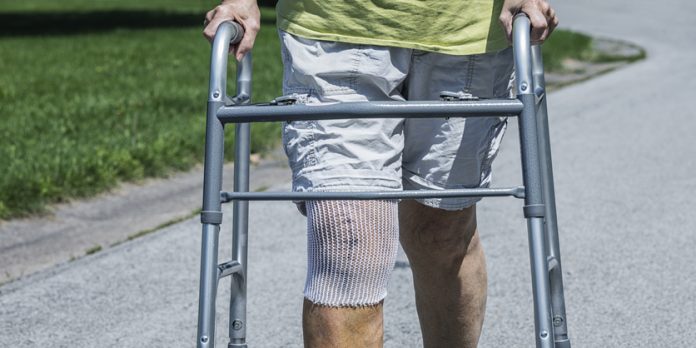Knee and hip replacements are increasing globally due to an ageing population. In Australia over 65,000 knee and 53,000 hip joint replacements are performed were performed in 2022 and the number of people needing a joint replacement is projected to exceed 250,000 people each year in Australia by 2030. In the United States, the number of patients needing a joint replacement will exceed 2.7 million in the next 7 years. Post-surgery infections, while rare at 1-5% of patients, result in high patient morbidity and mortality.
These infections cost Australian hospital over $21,000 per infection, adding an extra $97 million to Australian healthcare costs. In the United States the annual national hospital costs for treating infection are projected to exceed $1.85 billion.
We currently use an antibiotic, cefazolin, at the time of surgery to prevent infection. But with the rise of antibiotic resistant bacteria, experts have debated whether adding a second antibiotic, vancomycin, would be better to prevent more infection. Vancomycin is a commonly used antibiotic for MRSA (methicillin resistant Staphylococcus aureus, or “golden Staph”). Many centres in Australia and globally had adopted the practice of giving both cefazolin and vancomycin to prevent infections, despite the lack of clear benefit.
A clinical trial, published October 19 in the New England Journal of Medicine and led by Monash University researchers, in collaboration with orthopaedic surgeons and infectious diseases doctors, has found that the addition of vancomycin did not protect against infection and may have led to more infections and more adverse reactions for the patients.
According to the study lead, Professor Trisha Peel, from the Monash University Central Clinical School, “Given the number of joint replacements performed in Australia and globally, our trial has answered the important about whether more antibiotics are better for our patients having joint replacement surgery: with the definitive answer being “no”. This trial will have a significant impact on practice,” she said
The Australian Surgical Antibiotic Prophylaxis (ASAP) trial looked at 4239 patients without a history of MRSA, in 11 hospitals across Australia, including regional and private hospitals. Patients were randomised to receive receive either vancomycin or saline placebo, in combination with cefazolin. Among all patients, the addition of vancomycin was no better than the traditional cefazolin antibiotic. Unexpectedly, in patients undergoing knee joint replacement, the risk of infection was higher in the vancomycin group, 5.7%, than in the placebo group, with 3.7% infection rate.
Professor Peel said that the study reflects how important these large, randomised, multi-centre clinical trials are “”A lot of things seem to make sense, but we don’t really know for sure until they are tested in a clinical trial.” Prof Peel said “This is one of those cases – more antibiotics weren’t better, and in some people might have actually been worse.”,” she said.










